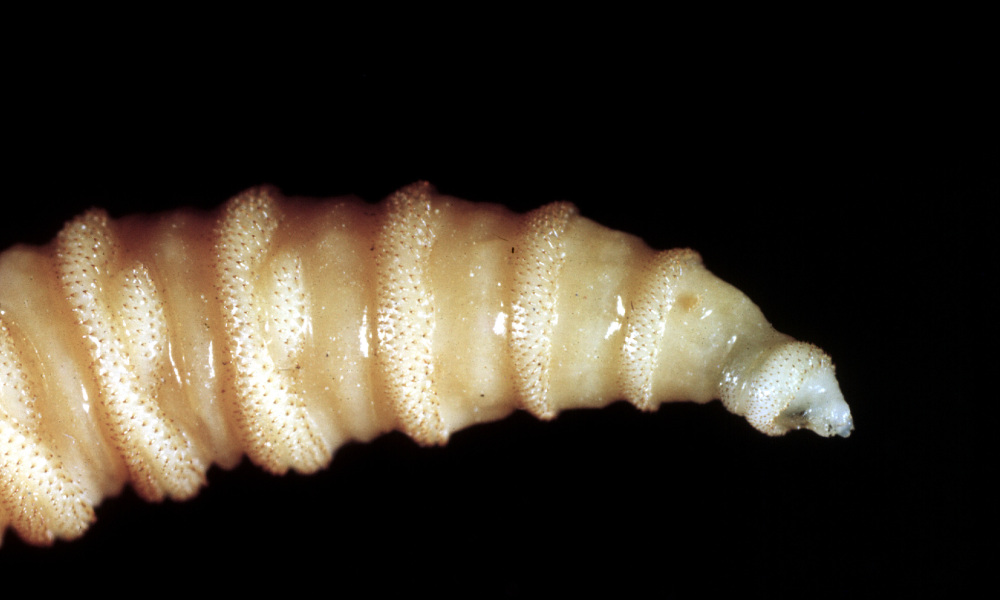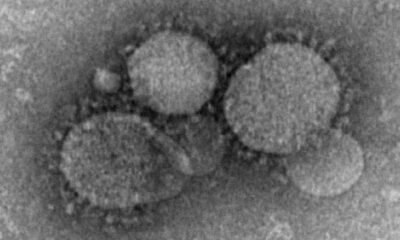Health
First U.S. case of flesh-eating screwworm confirmed in Maryland

A person in Maryland has been diagnosed with a rare flesh-eating parasite known as the New World screwworm after traveling from Guatemala, marking the first confirmed human case in the United States, according to Reuters.
Four sources familiar with the matter told Reuters that the case was identified in a patient who received treatment in Maryland. One source said that the U.S. Centers for Disease Control and Prevention (CDC) had confirmed the infection, notifying livestock stakeholders.
The New World screwworm, a fly whose larvae burrow into living tissue, primarily affects cattle and other warm-blooded animals but can also infect people in rare cases. It causes severe, sometimes fatal damage if untreated.
This is the first confirmed U.S. case since the outbreak began to escalate in Central America and southern Mexico.
Additional human cases are being reported across the region. Guatemala has confirmed 16 cases so far in 2025, Belize reported its first-ever case this week, and Honduras has confirmed 166. Other cases have also been documented in El Salvador, Costa Rica, Panama, and Nicaragua.
On Saturday, Mexican authorities confirmed their 41st case of the year and the first in Yucatán, while most cases in Mexico have been concentrated in Chiapas.
The U.S. Department of Agriculture’s Animal and Plant Health Inspection Service (APHIS) said this week that detections of screwworm have surged dramatically, from an average of 25 cases per year in Panama to more than 6,500 cases in 2023.
Since then, the parasite has spread into Costa Rica, Nicaragua, Honduras, Guatemala, Belize, El Salvador, and Mexico—north of the biological barrier in Panama that had contained it for decades.
APHIS announced it is investing nearly $110 million to combat the outbreak in Central America and Mexico to prevent it from spreading into North America. This includes shifting sterile fly dispersal operations to Mexico, the northernmost point of the outbreak, while continuing eradication efforts further south.
“NWS is a devastating pest,” U.S. Secretary of Agriculture Brooke L. Rollins said at an event in Texas on August 15. “It is not only a threat to our ranching community—but it is a threat to our food supply and our national security.”
The screwworm parasite was eradicated from the United States in 1982, but the escalating outbreak in Central America and Mexico has raised concerns among officials about its possible return.

-

 Health3 days ago
Health3 days agoFrance confirms 2 MERS coronavirus cases in returning travelers
-

 Health5 days ago
Health5 days ago8 kittens die of H5N1 bird flu in the Netherlands
-

 Legal1 week ago
Legal1 week agoUtah Amber Alert: Jessika Francisco abducted by sex offender in Ogden
-

 US News1 week ago
US News1 week agoExplosion destroys home in Oakland, Maine; at least 1 injured
-

 Health1 week ago
Health1 week agoMexico’s September human bird flu case confirmed as H5N2
-

 Legal6 days ago
Legal6 days ago15 people shot, 4 killed, at birthday party in Stockton, California
-

 US News5 days ago
US News5 days agoFire breaks out at Raleigh Convention Center in North Carolina
-

 World1 week ago
World1 week agoWoman killed, man seriously injured in shark attack on Australia’s NSW coast




